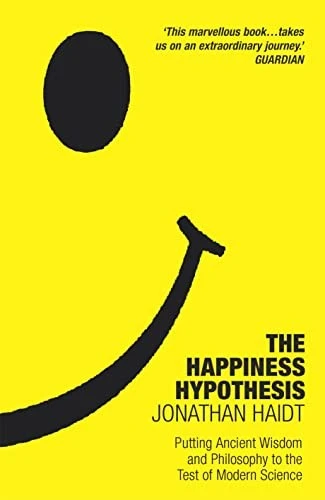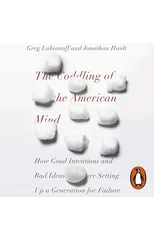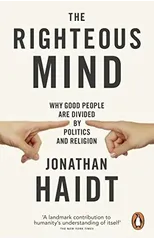The Happiness Hypothesis
Ten Ways to Find Happiness and Meaning in Life
(Author) Jonathan HaidtEvery culture hands wisdom down through generations. What doesn't kill you makes you stronger. What you do not wish for yourself, do not do to others. Happiness comes from within. Can these 'truths' hold the key to a happier, more fulfilled life? In The Happiness Hypothesis, social psychologist Jonathan Haidt examines ten Great Ideas which have been championed across centuries and civilisations and asks- how can we apply these ideas to our twenty-first century lives? By holding ancient wisdom to the test of modern psychology, Haidt extracts lessons on how we can train our brains to be more optimistic, build better relationships and achieve a sense of balance. He also explores how we can overcome the obstacles to well-being that we place in our own way. In this uplifting and empowering book, Haidt draws on sources as diverse as Buddha, Benjamin Franklin and Shakespeare to show how we can find happiness and meaning in life. 'I don't think I ever read a book that laid out the contemporary understanding of the human condition with such simple clarity and sense.' Guardian
Jonathan Haidt
Jonathan Haidt is a social psychologist known for his research on morality, politics, and religion. He is the author of several influential books, including "The Righteous Mind: Why Good People are Divided by Politics and Religion," which explores the psychological foundations of morality. Haidt's writing style is characterized by a blend of academic rigor and accessible storytelling, making complex ideas understandable to a wide audience. His work has had a significant impact on the fields of psychology and political science, challenging conventional wisdom and offering new insights into human behavior. "The Righteous Mind" is considered his most famous work, shedding light on the origins of moral beliefs and how they shape our worldviews.





